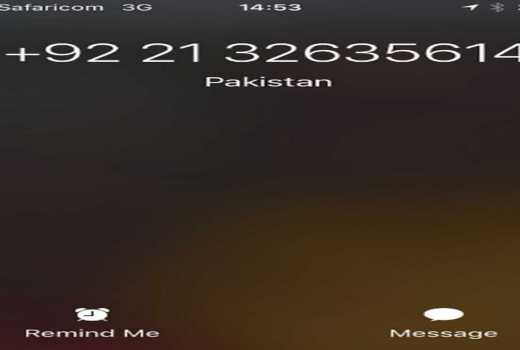×
The Standard e-Paper
Smart Minds Choose Us

NAIROBI, KENYA: International calling scams start with a simply transnational phone call that instinctively disconnects before the owner of the phone could receive it.
The calls that mainly originate from countries like Burundi (+257), Malawi (+265), Pakistan (+92), Russia (+7), Nigeria (+234), Tunisia (+216), Belarus (+375) often ring for less than three seconds before disconnecting.